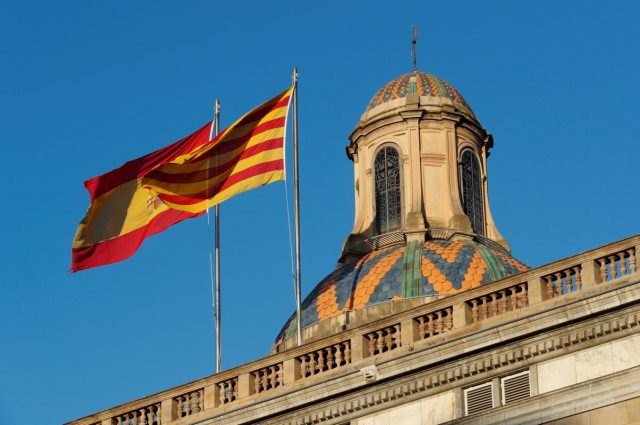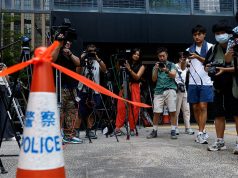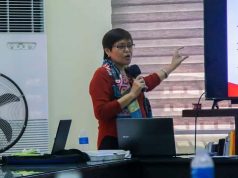
BARCELONA/MADRID — Spain’s state prosecutor accused sacked Catalan leader Carles Puigdemont of rebellion and sedition on Monday as the former regional president traveled to Belgium with other members of his ousted administration and hired a lawyer there.
As Madrid began direct rule of Catalonia, Attorney-General Jose Manuel Maza called for charges of rebellion, sedition, fraud and misuse of funds to be brought against Catalan leaders who organized an illegal referendum on independence from Spain.
The October 1 vote in the prosperous region with its own language and culture has triggered Spain’s biggest crisis in decades. On Friday, Spanish Prime Minister Mariano Rajoy sacked Catalonia’s secessionist government and called a snap regional election for December 21, and said the central government would take direct control.
That process began smoothly on Monday as employees ignored calls for civil disobedience and turned up for work, while secessionist parties agreed to stand in the December poll.
A senior Spanish government official said on Monday that Puigdemont had traveled to Belgium. He drove to the French city of Marseilles to catch a flight to Belgium with five other members of his sacked administration, Spanish media reported.
Belgian lawyer Paul Bekaert, whose website says he is involved in a human rights organization, said he had taken on Puigdemont as a client but would not confirm whether he was working with him on a political asylum claim.
“I can confirm Carles Puigdemont has appointed me as his legal representative, as he is currently in Belgium,” Bekaert told Reuters. “At the moment there are no specific dossiers I am preparing for him.”
Monday’s calm on the streets of Barcelona resolved a weekend of uncertainty during which it was not clear how the region would respond to central control.
‘Things have to carry on’
Some of the most prominent ousted Catalan leaders, including Puigdemont and Vice President Oriol Junqueras, had said they would not accept their dismissal.
But their respective parties, PdeCat and Esquerra Republicana de Catalunya, said on Monday they would take part in the election called by Rajoy, a tacit acceptance of direct rule from Madrid. The regional parliament canceled a meeting for Tuesday, another signal lawmakers accepted they had been dismissed.
A call for widespread civil disobedience from the main civic groups behind the secessionist campaign failed to attract many followers. Public sector workers such as teachers, firefighters and the police mostly started worked as normal on Monday and there was no sign of widespread absenteeism.
A trade union, Intersindical-CSC, which had called for a general strike in Catalonia, said on Monday it had canceled it.
Other regional leaders did not turn up to their offices though some of their staff did.
One of 140 senior officials appointed directly by the outgoing government described the situation as “normal” and said he had not yet received any letter of dismissal.
“We civil servants want everything to be normal. Things have to carry on. The day-to-day work still has to be done,” he said.
Two hundred thousand public sector workers receive salaries paid by the Catalan region, and another 100,000 in the region rely directly on the Madrid government.
Hundreds of thousands of supporters of a unified Spain marched on Sunday in one of the biggest shows of force yet by the so-called silent majority that has watched as regional political leaders push for Catalan independence.
Worsened economic outlook
Two opinion polls showed support for independence may have started to wane. A Sigma Dos survey published in El Mundo showed 33.5 percent of Catalans were in favor of independence while a Metroscopia poll published by El Pais put that number at 29 percent. This compared to 41.1 percent in July according to an official survey carried out by the Catalan government.
Opponents of secession largely boycotted the October 1 referendum, when participants voted overwhelmingly for independence on a turnout of 43 percent.
Spain’s interior ministry named a new chief for the regional police on Saturday who has insisted that the 17,000 officers of the force should remain neutral.
The force has already withdrawn protection for sacked regional government members, who were also left without their official cars. Their portraits were removed from the walls of public buildings.
The government’s move to impose direct rule received the backing of several influential Catalan business lobbies who called on firms to stay in the region. The chaos has prompted an exodus of businesses from Catalonia, which contributes about a fifth of Spain’s economy, the euro zone’s fourth-largest.
Credit ratings agency Fitch said on Monday the escalation of tensions in Catalonia significantly worsened the outlook for Spain’s economic growth and could prompt negative action on the country’s rating.









